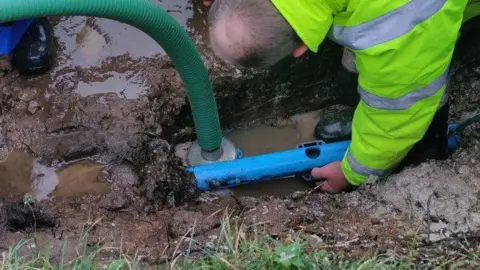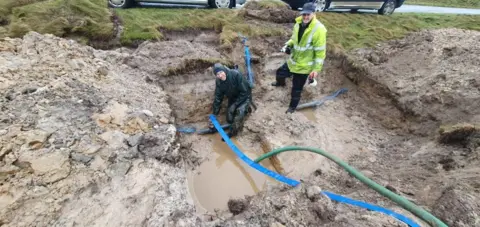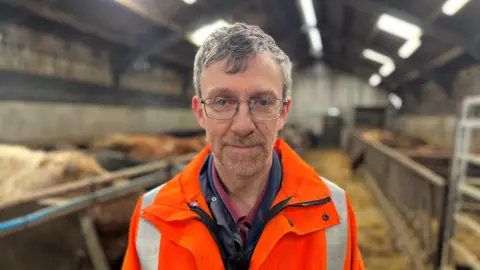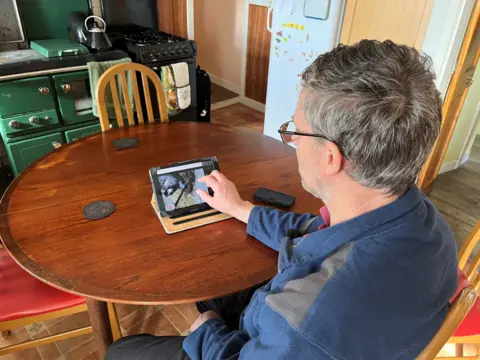
 CloudNet
CloudNet
Homes and businesses in the Orkney island of Papa Westray are now receiving their internet through the water network, in what is believed to be a UK first.
Cables have been laid within existing water pipes, using the islands community-owned water system, enabling full fibre broadband to almost all properties.
The innovation allows locals to do things they couldn’t previously, like attending medical appointments remotely and gaming.
It’s now hoped it will attract people to live and work in the island and that water networks could be used to deliver broadband in other hard-to-reach areas.


In the past, Papa Westray has suffered from poor connectivity, with internet speeds either slow or non-existent.
This has limited what the 90 or so residents there can do.
In total, it took around eight months to install the network, which was carried out by local contractors CloudNet.
The internet connection initially reaches Papa Westray via a radio link from neighbouring isle of Westray, before being distributed across the island using the water pipes.
The fibre cable is delivered through a second pipe housed within the drinking water network.
The island became the first to use this approach successfully because the water system is owned by the community, making the work a more efficient and less disruptive alternative to conventional cable laying methods.


Ian Cursiter, a Water Board supply engineer and farmer in Papa Westray, has lived on the island his whole life.
For the first time, the broadband allows him to access the same facilities as those elsewhere.
He is now able to watch calves being born from the comfort of his bedroom, allowing him to catch up on sleep.
“If you’re disturbing them when they’re calving sometimes they just stop and they look at you like they want to get on with it, so that’s one of the good things.
“We had an analogue system for one or two years but the cameras didn’t seem to last very well. The digital side of things is so much better, I find that anyway.”
The camera can move 360 degrees, meaning Mr Crusiter can see what’s going on from all angles.
He was one of the workers who helped to install the broadband and said it’s “amazing and different”.
The system also means the chance of a calf dying is less likely, as Mr Cursiter is able to monitor the situation closely.
He says the costs to put the cameras in is “worth it” if it means saving a calf’s life.


Remote sensors placed in the water pipe also provide a hi-tech way to monitor the island’s water quality.
CloudNet received funding to carry out the work through the Reaching 100% (R100) programme from the Scottish government.
Managing director of CloudNet, Greg Whitton, said the company was “proud” to have delivered the first successful commercial project of its kind in the UK, to the most remote island in Orkney.
“The benefits to fibre in the water is you don’t need to excavate and you can run over a kilometre without having to do any land. You’re just utilising the water network to provide fibre to properties at home,” he said.
Mr Whitton said the island was left behind in terms of internet speed, so he is happy there is now a solution for it.
He said there were challenges making sure the system could be designed and installed in a way that worked for the island.
“I think with the help of the islanders it’s been a big challenge because we’ve learnt a lot through the programme. But I think the uplift and success of it has been really good.”








